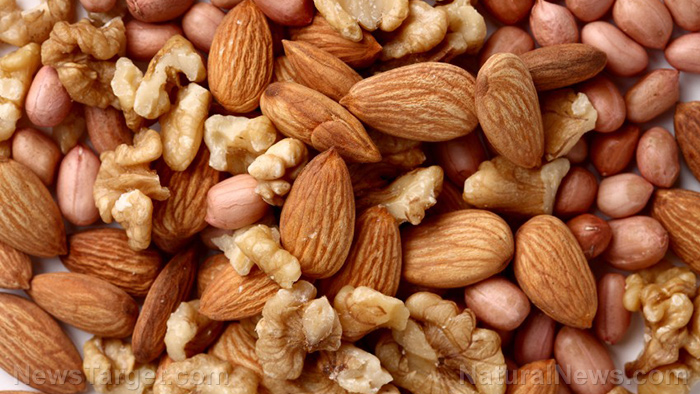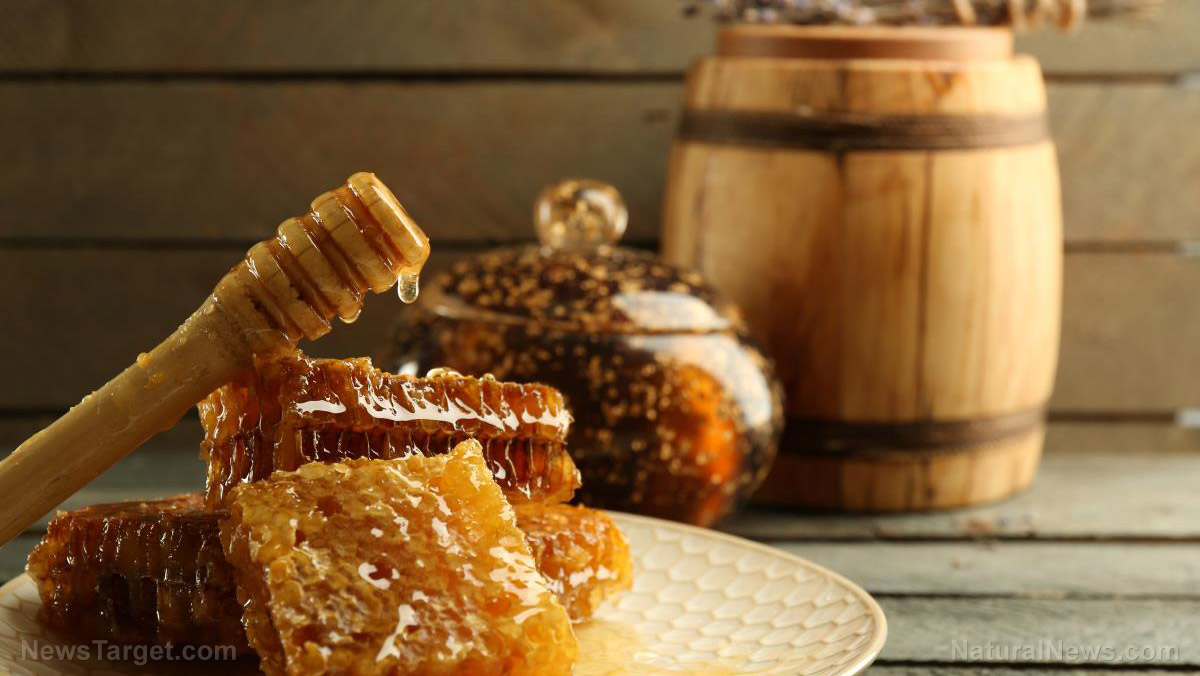4 Plant-based sources of vegan cheese (Plus 2 recipes to try)
04/24/2020 / By Zoey Sky

A vegan diet is good for your overall health, but it restricts what you can and can’t eat. If you’re craving cheese but want to stick to your diet, why not try vegan cheese?
Plant-based vegan cheese
Vegan cheese is a plant-based substitute for animal-based cheese, and it’s popular among people who want to go dairy-free or those who have lactose intolerance.
Vegan cheese is also recommended for people who are on a plant-based, vegetarian or vegan diet. However, do note that store-bought vegan cheese is highly processed and is not always a “natural” product like dairy cheese.
Like regular cheese, vegan cheese must be eaten in moderation. (Related: Reset your gut hormones with a vegan diet.)
Nuts and seeds
Nut-based “cheeses” are popular vegan cheese products because their taste and texture closely mimic that of dairy cheese. While nut-based cheese contains less calcium than regular cheese, you can now find calcium-fortified products on the market.
But you also have the option to make nut-based cheese at home. This type of vegan cheese requires little processing. It’s also easy to make seed cheese, which has a similar culturing process to conventional cheese.
The manufacturing process for both kinds of cheese involves soaking, blending and fermenting nuts or seeds with the same bacteria often used to make dairy cheese. Nut and seed cheeses can be infused with flavor by adding nutritional yeast or herbs.
Nut- and seed-based cheeses are often made from:
Coconut
Coconut is used as a base for cheese alternatives, but it needs to be processed to attain a texture similar to cheese. Coconut oil’s high fat content helps recreate the rich creaminess of cheese.
However, the strong flavor of coconut also requires the addition of other ingredients to make it taste cheesy. Coconut-based cheese contains starch or flour, along with flavorful ingredients like garlic powder, lemon juice, nutritional yeast, onion powder and salt.
Potatoes and carrots
Tuber vegetables like potatoes and carrots are often used in cheese sauces and spreads, particularly vegan nacho cheese.
You can make this kind of cheese at home using fresh ingredients. First, chop up the vegetables, then boil them until they’re soft. Transfer the mixture to a blender and process until smooth.
Boost the flavor and texture of your vegan cheese by adding non-dairy milk, nutritional yeast, oil, starch, water and seasonings. Other vegan cheese bases include aquafaba, hazelnuts, onions, and vegetable broth.
Tapioca flour
Cheese substitutes can be made out of tapioca flour or combinations of flours and other products like soy. This kind of cheese is less likely to be used as sliceable cheese, but you can still use it in sauces.
A small amount of tapioca flour is used as a binding agent for nut-, seed- and soy-based cheese products. These are available in more solid forms.
Like dairy cheese, you must consume store-bought vegan cheese in moderation since they contain coagulants, salt and vegetable oils. In contrast, homemade varieties like carrot-, nut-, potato- or seed-based cheeses can be made with whole foods, which makes them better nutritionally.
Try making healthy vegan cheeses at home by following the recipes below:
Cashew brie
This cashew brie takes 30 minutes to prep.
Ingredients for 8 servings:
- 2 1/2 Cups of cashews
- 1/2 Cup of fresh blackberries
- 1/2 Cup of melted coconut oil
- 1/4 Cup of hemp seeds
- 1/4 Cup of pistachios
- 2 Tablespoons of brown rice flour
- 1 1/2 Tablespoons of maple syrup
- 1 Teaspoon of cinnamon
- 1/8 Teaspoon of Himalayan salt
- 5 to 6 sprigs of fresh thyme
- 1 Package of freeze-dried fruit of your choice (e.g., apricot, figs, pear, etc.)
Directions:
- Soak the cashews in hot water for two hours.
- Pour half the cashews, brown rice flour and melted coconut oil into a high-power blender. Blend at low speed until well-mixed.
- With the blender still on low, add the Himalayan salt, cinnamon, maple syrup, two to three sprigs of fresh thyme and hemp seeds. Blend until well-mixed.
- Add the rest of the cashews and blend on medium for two minutes.
- Line a nine-inch-round baking dish with parchment paper. Pour the nut mixture into the prepared dish.
- Tap the dish lightly several times on the counter to make the mixture sink into the mold, then smooth the top. Refrigerate for at least four hours.
- Prep the topping while you’re waiting for the mold to set. Cut the freeze-dried fruit into bite-sized pieces, then add the pistachios and the rest of the thyme.
- Remove the mixture from the baking dish 10 minutes before serving and add the topping. Drizzle with berries and maple syrup before serving.
Baked vegan “mozzarella” sticks
You’ll need 12 hours of prep time for these vegan mozzarella sticks.
“Mozzarella” ingredients:
- 1 1/4 Cups of warm water
- 1/2 Cup of cashews, soaked for 2 hours
- 1/4 Cup and 1 tablespoon of cashew cream
- 1/4 Cup of psyllium husk
- 2 Tablespoons of nutritional yeast flakes
- 1 Teaspoon of coarse sea salt
- Juice of 1/2 lemon
- A pinch of pepper
Breading ingredients:
- 1/2 – 3/4 Cup of water
- 1/4 Cup plus 2-3 tablespoons of corn starch
- 1 Teaspoon of paprika
- 1 Teaspoon of turmeric
- 1/2 Teaspoon of salt
- Rice paper, as needed
- Plant-based flour
- Bread crumbs
- A pinch of pepper
Directions:
- Put the warm water and psyllium in a small bowl and mix well. Set aside for two hours.
- Pour the mixture into a high-power blender or food processor. Add the cashews, cream, lemon juice, yeast flakes, sea salt and pepper. Blend until combined.
- Transfer the mixture to a bowl and cover it. Let the mixture solidify overnight.
- Remove the solidified cashew mixture from the bowl and cut it into 1/4-inch-thick slices.
- Submerge the rice paper in warm water for a couple of seconds until soaked. Remove, drain and place on a clean surface. Place a vegan “mozzarella” slice on the rice paper and wrap. Repeat for each “mozzarella” slice.
- Get three deep plates and add flour and bread crumbs separately on two dishes.
- On the third plate, combine the paprika, turmeric, starch and salt. Add water and stir with a fork. If the mixture is too thick, add more water. The mixture should have the consistency of mixed eggs.
- Place the “mozzarella” slices in the flour, then the starch mixture and lastly, in the bread crumbs.
- Simmer the oil in a pan and fry both sides of the “mozzarella.”
Spread a bit of vegan cheese on crackers or a bagel for a healthy snack. Who says vegans can’t have their cheese and eat it too?
Sources include:
Tagged Under: carrots, Coconut, how-to, natural ingredients, nuts, plant-based foods, potatoes, recipes, seeds, vegan cheese, vegan diet



















